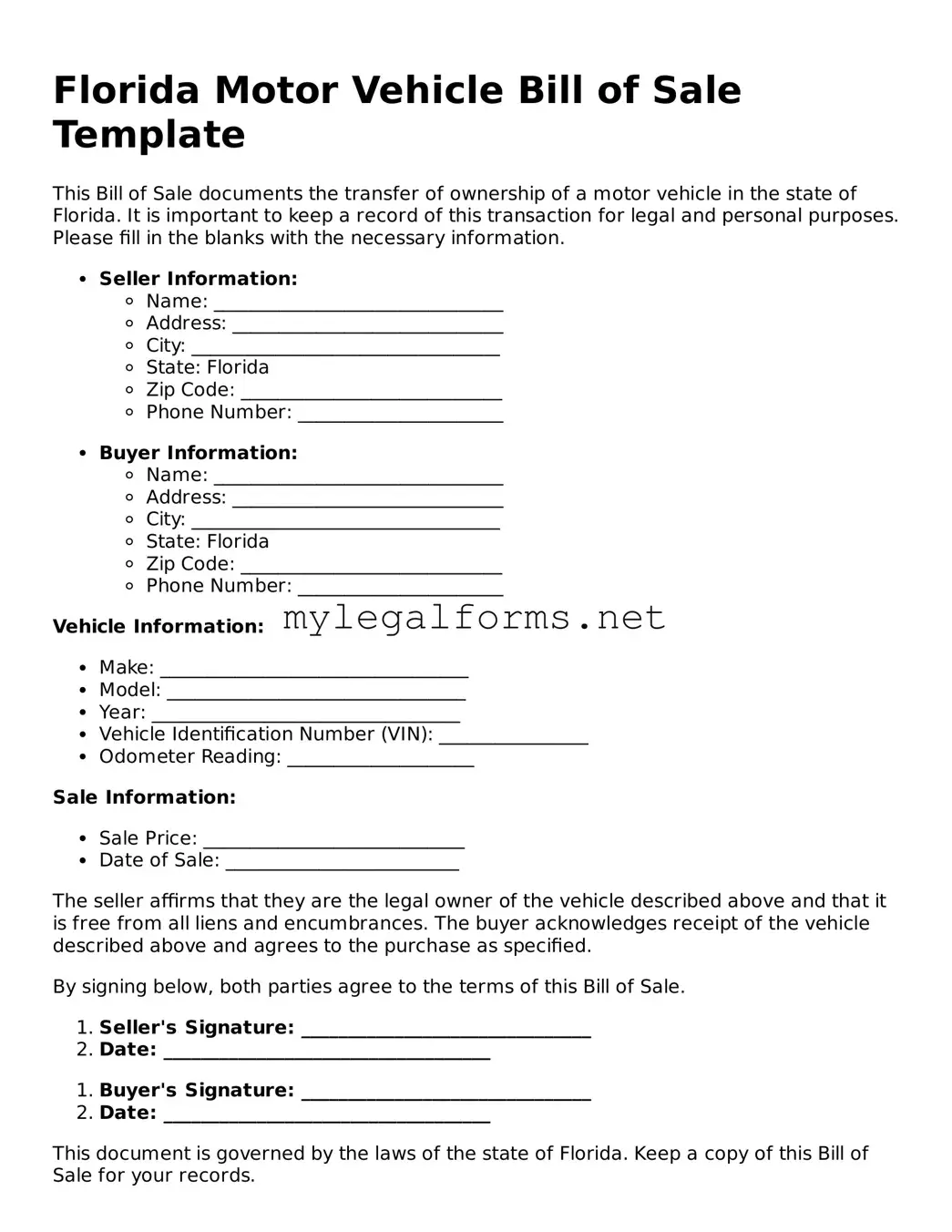Motor Vehicle Bill of Sale Document for Florida State
The Florida Motor Vehicle Bill of Sale form is a legal document that records the transfer of ownership of a motor vehicle from one party to another. This form serves as proof of the transaction and includes essential details such as the vehicle's identification number, sale price, and the names of both the buyer and seller. Understanding this form is crucial for ensuring a smooth and lawful transfer of vehicle ownership in Florida.
Launch Motor Vehicle Bill of Sale Editor

Motor Vehicle Bill of Sale Document for Florida State
Launch Motor Vehicle Bill of Sale Editor

Launch Motor Vehicle Bill of Sale Editor
or
⇓ PDF Form
Complete the form at your pace — fast
Finish your Motor Vehicle Bill of Sale online and download the final version.